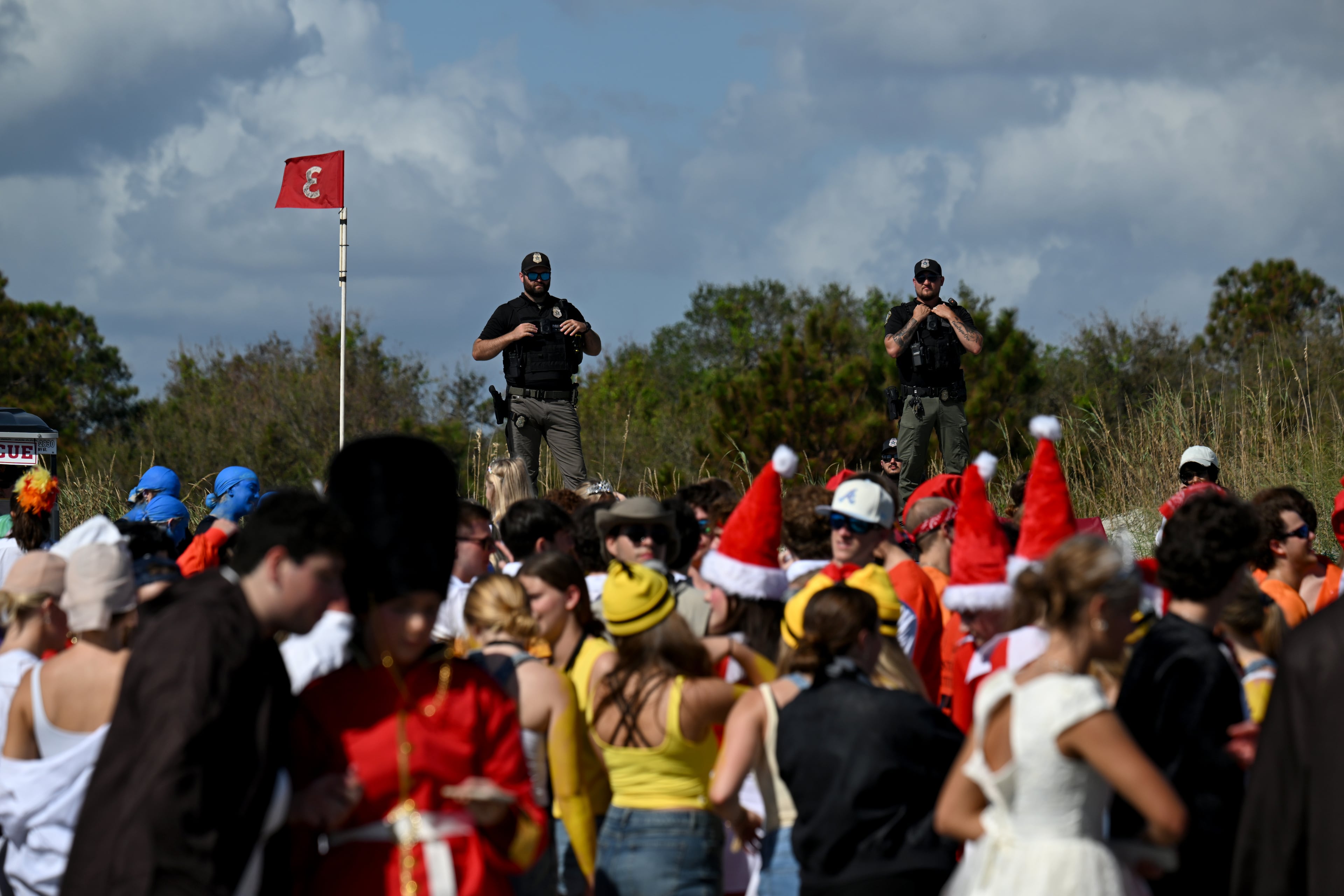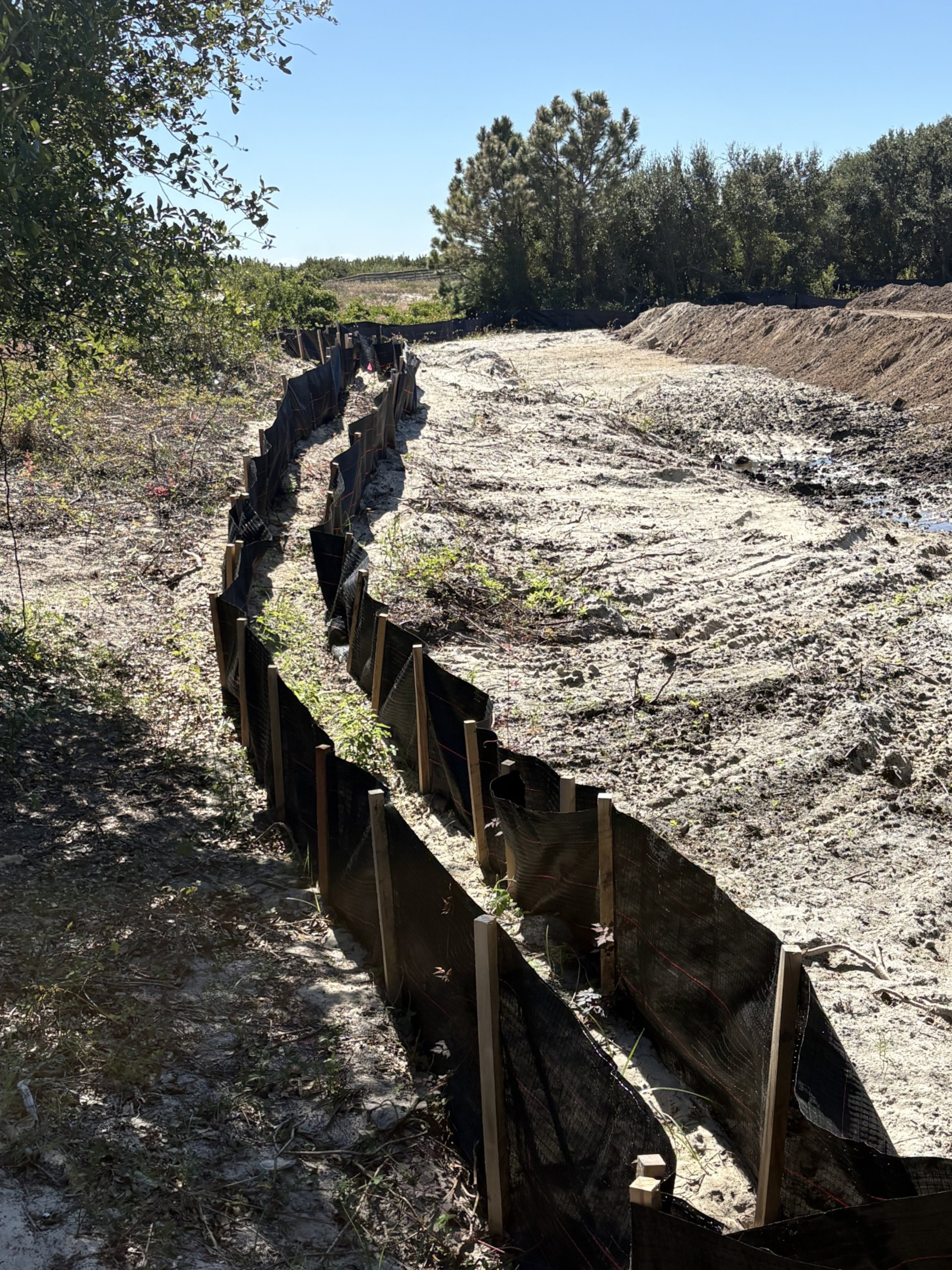Dunes dustup hangs over Georgia-Florida weekend’s ‘Frat Beach’ party

ST. SIMONS ISLAND ― Coast Guard Park is ground zero for the annual “Frat Beach” party, a daylong bash on the eve of Saturday’s Georgia-Florida football game in nearby Jacksonville.
The park is the site of a closed U.S. Coast Guard Station and the rare St. Simons Island beach access point that can accommodate a crowd. It has long featured parking, a bathhouse and a broad dune crossover linking the park to the sands.
Coast Guard Park won’t be so hospitable Friday when an expected 5,000-plus University of Georgia students, alumni and fans arrive for the 2025 edition. A beautification project nearly a decade in the making began in early September. Construction has closed much of the parking lot and the bathhouse has been demolished, replaced by just a few porta-potties.





























But it’s another consequence of the construction that’s stirring angst among residents and environmentalists.
Glynn County billed the park rehab as a conservation project to secure a $3 million Georgia Outdoor Stewardship Act grant. But the work is encroaching on a bordering dune field with plans to remove trees and vegetation.
The expanding footprint, which county officials insist is not impacting the dunes, is meant to accommodate 75 to 100 new parking spaces, a multipurpose public safety building and lifeguard tower, and relocation of a sand volleyball court.

The construction has renewed long-voiced debate about the need for a park makeover. Many neighbors support it and what increased parking, improved drainage and better aesthetics will mean for them, their properties and the island. Proponents also cite the promise of new bathrooms that meet Americans with Disabilities Act standards and better access for emergency vehicles.
Meanwhile, critics lash out on social media and in conversation, saying it goes against the spirit of stewardship and threatens the “raw feel” that makes Georgia’s beaches feel special. The detractors have rallied behind One Hundred Miles, a local conservation and environmental nonprofit opposed to the project. Some members of the Glynn Environmental Coalition also have opposed the project, but the nonprofit’s executive director said the group has not taken a position for or against it.
The controversy has also cast shade on the otherwise beloved outdoor stewardship grant program that has contributed more than $117 million to conservation projects across the state since its 2019 inception.
“The whole idea that funding meant for conservation is going toward removal of dune sand and wetlands never really sat well with me,” said Peggy Herman, a St. Simons Island resident who sees both good and bad in the project. “You would think conservation funds would be for building bigger, better dunes, not encroaching on them for a volleyball court.”
An unpopular project moves forward
Coast Guard Park’s beautification is as polarizing as a go-for-it-on-fourth-down decision in the Georgia-Florida game.
The local convention and visitors bureau first suggested the project in 2016 to attract more beach vacationers. Glynn County commissioned a study the next year and a master plan was unveiled in 2018.
Island residents opposed to a busier beach pushed back, and a Special Purpose Local Sales Tax referendum that included the project failed in 2021. (A year later, a SPLOST vote that omitted Coast Guard Park from the funding list passed.)
Glynn County didn’t punt after the 2021 SPLOST went splat. County hotel-motel tax revenues can go to tourism development projects, and the park serves visitors in two areas: the beach and a World War II-themed museum now housed in the old Coast Guard Station.
Yet hotel-motel funds alone couldn’t cover the park’s $7.8 million beautification price tag. County leaders identified another source: the Georgia Outdoor Stewardship Act grant program, created to support parks and trails and “protect critical conservation land.”

Officials cited the project’s proposed parking lot improvements — specifically replacing pavement and hard-packed limestone with water-permeable surfaces — prominently in the grant application. The park drains poorly, and rain runoff frequently pulls sediment and trash into the dune field and an adjacent wetland area.
Coast Guard Park won a stewardship grant in 2023, receiving the maximum award of $3 million. Throw in a $1 million state public safety budget appropriation to build a beach lifeguard headquarters and viewing stand, and Coast Guard Park beautification was fully funded.
Earlier this year the county secured a permit from the state’s Coastal Resources Division, an arm of the same agency, the Georgia Department of Natural Resources, that manages the Georgia Outdoor Stewardship Act Program.

But Glynn’s permit application plan included changes that affected the dune and vegetation. Some differences seem to run contrary to recommendations laid out by Department of Natural Resources staff during the grant process, such as staying more than 100 feet away from “sensitive environmental resources” and targeting construction toward areas “that have been disturbed in the past.”
A Glynn official said the park designs were unfinished at the time they applied for the stewardship grant and that the county worked “hand in hand” with DNR officials in finalizing the plans. Those included changes along the edge of the dune field. The county insists the work is not modifying, leveling or impacting natural areas.
Critics nonetheless labeled Glynn County’s actions a bait-and-switch. Internal DNR emails, obtained through the Georgia Open Records Act, reveal staffers who reviewed the permit expressed concerns with changes to habitat, too. In one exchange focused on vegetation removal, a wildlife resources staffer wrote, “I’m especially concerned about the message this sends if we’re providing the funding for this project.”

Yet the permitting panel, the Coastal Resources Division’s Shore Protection Committee, approved the project by unanimous vote because it met compliance with statutory guidelines. The committee has no authority to require that the plans it reviews match those used to win the outdoor stewardship grant.
“There is a disconnect in the process that has allowed the project to stray from its intended conservation goal,” said Alice Keyes with One Hundred Miles.
Outlier in state-funded conservation
Also caught up in the new Coast Guard Park plan’s fallout is the Georgia Outdoor Stewardship Act program — and unfairly so, say conservation champions across the state, such as The Altamaha Riverkeeper, The Nature Conservancy and the Georgia Audubon Society.
Experts note the Glynn County project is an outlier among the 74 funded during the Georgia Outdoor Stewardship Act program’s short existence. Those grant winners run the gamut in scope, from simple property acquisitions to establish or expand nature land,s to creations, remodels and expansions of parks and other physical facilities, including campgrounds and nature centers.
A review of the project list revealed only three others have drawn significant public pushback: a new nature trail in Roswell; a new parking lot at Wormsloe State Historic Site near Savannah; and a wildlife corridor on Jekyll Island.
But the tradeoffs in those projects have raised little ire among conservation and environmental advocates. At Wormsloe, for example, the parking lot took vehicles off the site’s iconic avenue of oaks, reducing stress on the trees caused by dust and the crush of tires on roots. Contrast that to Coast Guard Park, where the environmental collateral damage is for the sake of more parking, a volleyball court and sightlines for those working in the new lifeguard tower.

As for Frat Beach on Friday and Georgia-Florida weekend, the construction equipment will sit idle in anticipation of the partygoers’ arrival. Glynn County’s Resden Talbert, the director of capital development and procurement, is encouraging visitors to use Coast Guard Park for pedestrian entry and drop-off, with the parking lot to remain closed.
Massengale Park, less than a mile south along the beach, has a small parking area. Parking along streets and right-of-ways near the beach is allowed, just not near fire hydrants, stop signs and intersections. There is no public shuttle ferrying beachgoers from other parking areas on the island.
The park beautification will be completed by the next Frat Beach celebration — in 2028. The Georgia-Florida game is to be played elsewhere the next two years while Jacksonville’s EverBank Stadium undergoes a renovation of its own.
Correction
This story has been updated to correct the Glynn Environmental Coalition’s position on the project.
Read more AJC coverage from Georgia’s coast
Adam Van Brimmer is the Atlanta Journal-Constitution’s Savannah-based reporter. He joined the AJC in 2023 after several years as a reporter and editor at the Savannah Morning News.
Here are some recent AJC stories from Georgia’s coast:
Gilded Age tycoons built Jekyll’s doomed golf course. It’s been resurrected.
Fans are bananas for the Savannah Bananas. Will they embrace sister clubs?
Georgia Supreme Court sides with Gullah Geechee in Sapelo Island dispute
America’s ‘smallest church’ is a bit of a big deal on Georgia coast
Paper mill exit eases Savannah water woes, but pricey upgrades still on tap
Opening of Georgia EV battery plant to be delayed after ICE raid
Could world’s first nuclear-powered merchant ship become a Georgia museum?
Run or hide? Coastal Georgia’s newest hurricane preparedness quandary
No more horsing around in the heat: Savannah cracks down on carriage tours
Richard Kessler twice gave the hotel industry a wake-up call. He’s not done.
Who doesn’t like the beach at St. Simons? Nesting sea turtles
Construction deaths, injuries at Hyundai’s Georgia EV plant draw scrutiny
For more AJC stories from Savannah and the coast, click here.



